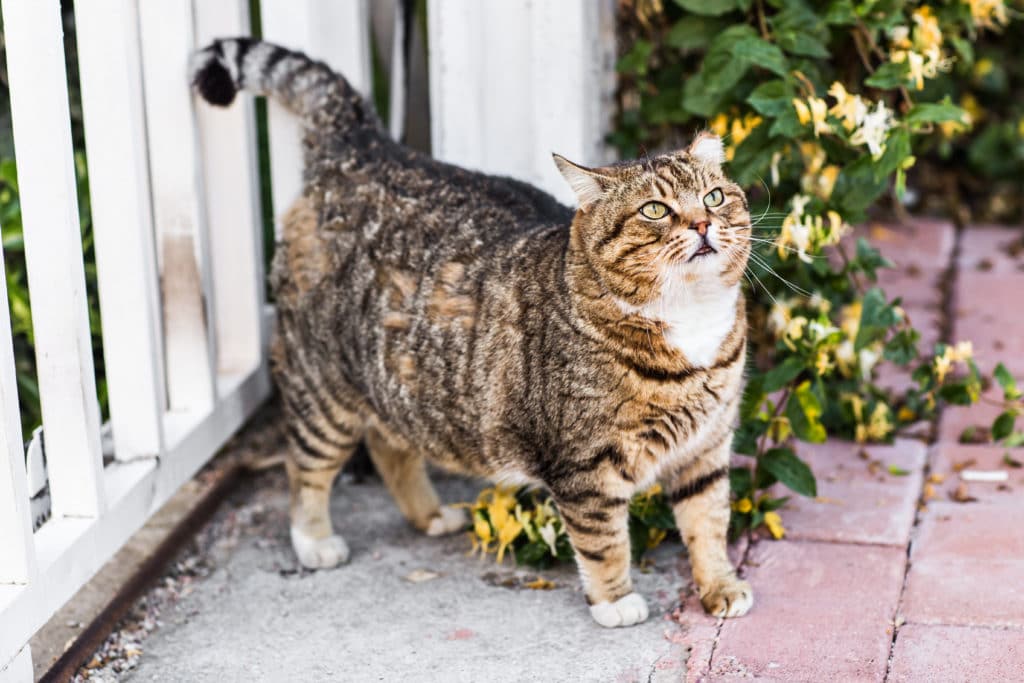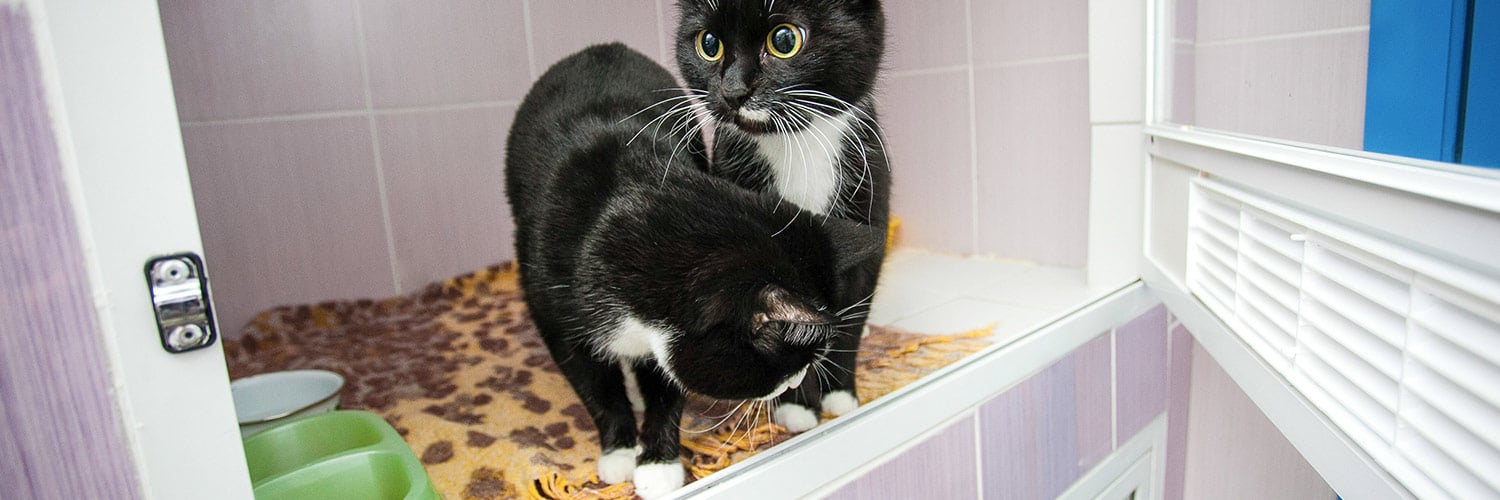Ask Yourself These Questions Before Adopting a Cat
Contents of Article
- 1. Why do you want to get a cat?
- 2. Do you have any allergies?
- 3. Are you allowed to keep a cat?
- 4. Do you have the time to devote to a cat’s care?
- 5. Do you have the financial resources to care for a cat?
- 6. What kind of cat do you want to get?
- 7. Are you going to adopt an adult cat or a kitten?
- 8. Will you treat your cat like a member of the family?
- 9. What will you feed your cat?
- 10. What happens if you go away from home?
- 11. What will you do if your cat gets sick?
- 12. Will you have your cat neutered or spayed?
- 13. Can you provide a home for a medically needy or senior cat?
- 14. Should you foster the cat before adopting it?
- 15. Can you commit to caring for a cat for the rest of his life?
Adopting a pet is a noble thing because, in many cases, you could be literally saving a life. But becoming a cat owner is about more than that – it is also about sharing your life and opening your home to your new friend and companion.
Though adopting a cat is wonderful, it is a big decision and you need to think about it carefully before you make your choice. To help you determine whether adopting a cat is the right choice for you, ask yourself the following questions.
1. Why do you want to get a cat?
Owning a cat is a big responsibility so, before you make the commitment, think about why you want to get a cat. Are you looking for a companion? Do you have extra love to give? Are you trying to replace a pet you’ve recently lost? There are many good reasons for adopting a cat, just make sure that your motives are pure before you make the choice.
2. Do you have any allergies?
Before you bring home a cat, you should make sure that you aren’t allergic. If you are, you will either have to take allergy pills throughout the duration of your cat’s life or rehome him. If there is a possibility that you might not be able to keep the cat for the rest of his life, you should reconsider adopting him in the first place. Not only do you need to think about your own allergies, but don’t adopt a cat if anyone else in your household is allergic.
3. Are you allowed to keep a cat?
If you own your own home, you can set your own rules when it comes to pets. If you are a renter, you’ll need to check your rental agreement to see whether cats are allowed. Keep in mind that many landlords will allow a cat over a dog, but there might still be rules you need to follow. Some landlords only allow declawed cats and they may charge you an extra security deposit and/or a monthly fee. Most animal shelters will want to see proof that you are allowed to keep a pet before they let you adopt anyway, so you’ll need to know before you fill out the adoption application.
4. Do you have the time to devote to a cat’s care?
Cats are low-maintenance pets when compared to dogs, but they still require a certain degree of care. You’ll have to stick to a routine for feeding your cat and you’ll also have to scoop his litter box a few times a week to keep it fresh. Another responsibility you’ll have to take on is caring for your cat medically – taking him to the vet as needed and keeping him up to date on vaccinations.
5. Do you have the financial resources to care for a cat?
Owning a pet can be expensive, though cats are often less costly than dogs. Before you decide to adopt a cat, make sure that you can cover his adoption fee as well as the cost to purchase necessary supplies like a carrier, food and water bowls, flea and tick protection, toys, grooming supplies, and more. You’ll also need to budget for annual or semi-annual vet visits plus the cost of vaccinations and spay/neuter surgery, if that hasn’t already been done.
6. What kind of cat do you want to get?
Many people don’t realize that there are different breeds of cat, just as there are different breeds of dog. Of course, many of the cats that end up in shelters are a mixture of different breeds, so you may not always be able to tell. If you have a certain breed in mind, however, you can put your name on a list at your local shelter and they can let you know if one comes in.
7. Are you going to adopt an adult cat or a kitten?
Kittens are adorable, but they can be a lot of work. In most cases, kittens learn to use the litter box from their mother and a shelter won’t adopt a kitten out until he has been weaned and is eating solid food. Even so, there are some challenges you’ll have to deal with if you adopt a kitten – he may scratch your furniture as he learns to use his claws and he’ll have a lot of energy you’ll need to work off. If you aren’t sure you have the energy or the resources to care for a kitten, consider adopting an adult cat instead. The benefit here is that your cat’s personality will already be set, so you’ll have a good idea what kind of pet he’ll be from the get-go. Keep in mind, however, that many pets in shelters come from abusive or neglectful homes, so there may be some behavioral issues you’ll have to deal with.
8. Will you treat your cat like a member of the family?
A pet is more than just an animal that lives in your house – it should be a member of the family! If you plan to adopt a cat, you should make sure that you have the time and the resources to give him the love and care that he deserves. Don’t just do the minimum to meet your cat’s needs – provide him with the best care you possibly can.
9. What will you feed your cat?
Many first-time pet owners assume that cat food is cat food. In reality, however, cat food varies greatly in quality from one brand to another and from one recipe to another. The quality of your cat’s diet has a direct impact on his long-term health and wellbeing, so choose wisely! The best cat food recipes feature a premium animal protein as the first ingredient and is supplemented with digestible carbohydrates, healthy animal fats, and fresh fruits and vegetables for nutritional balance. Don’t choose a product that is too heavy in plant-based ingredients or that is made with artificial additives.
10. What happens if you go away from home?
When you adopt a cat, it is your responsibility to make sure that he gets the care he needs – even when you can’t give it to him yourself. If you live a busy life that includes a lot of travel, think about what you’ll do with your cat when you leave home. In most cases, cats can be left alone with adequate food and water supplies for a few days, but if you plan to be gone for any extended period of time you might want to think about leaving your cat with a friend or hiring a pet sitter.
11. What will you do if your cat gets sick?
Over the life of your cat, you should be prepared to deal with some health issues. Taking your cat to the vet once or twice a year will help you to maintain his health and to catch the signs of developing health problems when they are still treatable. Unexpected things happen, however, and you’ll need to have a plan in place for when they do. Find an emergency clinic in your area and keep the phone number handy in case something happens to your cat when the vet is closed.
12. Will you have your cat neutered or spayed?
Unless you plan to breed your cat, you should have him or her neutered or spayed by six months of age. Breeding your cat might sound like a great idea, but it is a huge responsibility and it can be risky for the cat. Most shelters won’t adopt out an animal until it has been altered but, even if your shelter doesn’t, you should seriously consider having the procedure done anyway.

13. Can you provide a home for a medically needy or senior cat?
Millions of pets end up in shelters each year, and not all of them are in prime condition. Kittens tend to go quickly once they enter the shelter system but older cats and cats with medical needs tend to be the last to go. If you’re committed to adopting a cat, think about whether you can provide for an older cat or a cat that has unique medical needs. It may be an extra challenge on your part, but you will be providing for a cat that other people have overlooked.
14. Should you foster the cat before adopting it?
If you’re thinking about adopting a cat but you don’t have any prior experience, it might not be a bad idea to foster the cat for a week or two to ensure that it’s a good fit. This may also be a good idea if you have other pets in your house or if you’re adopting a cat with unique needs. Many shelters will allow you to foster the cat for free, only charging you the adopting fee if you choose to keep him.
15. Can you commit to caring for a cat for the rest of his life?
Cats can live very long lives, up to 15 years or more. Unless you can provide for a cat for the duration of his life, you shouldn’t adopt one. By the time a cat makes its way into the shelter system and you take him home, he’ll be entering his third home in a relatively short period of time. Every cat deserves a loving forever home, so don’t adopt a cat unless you can commit to caring for him for his entire life.





